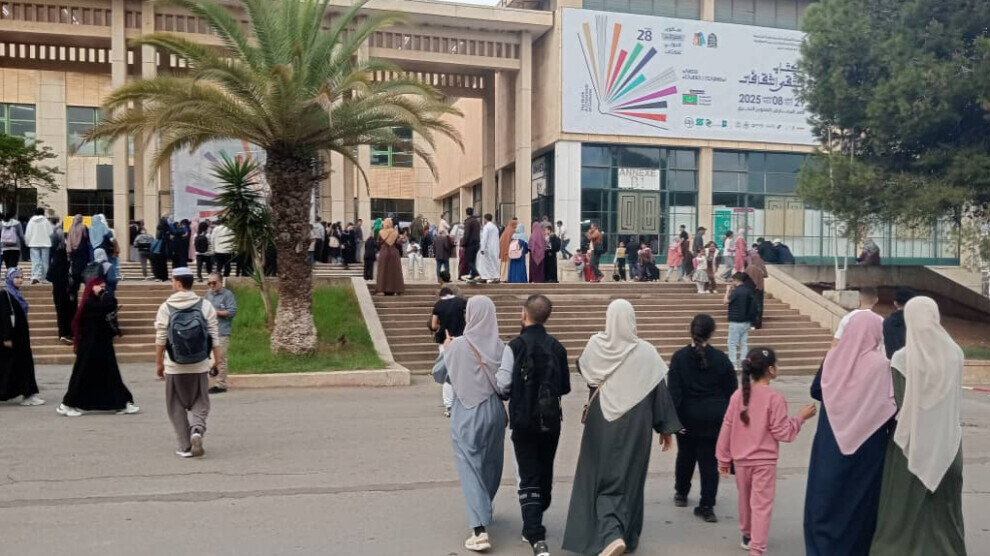A Feminine Presence Illuminates the Halls of the Algiers International Book Fair
The 28th edition of the Algiers International Book Fair was distinguished by a record female participation of writers and publishers from Algeria, the Arab world, and Europe, who presented literary works reflecting the depth of contemporary feminine.

Rabia Khreis
Algiers - Female participants at the Algiers International Book Fair emphasized the importance of women’s presence in the cultural scene through the presentation of innovative literary content that mirrors the depth of contemporary feminine experience in Algerian society.
The first and second days of the 28th edition of the fair, which officially opened on Wednesday evening, October 30, witnessed an unprecedented public turnout across various pavilions. The large crowds- estimated in the thousands- were partly due to the event coinciding with the Revolution Day holiday, celebrated annually on November 1, giving visitors an ideal opportunity to discover the latest in the literary and cultural scene in a festive atmosphere.
During a field tour by our agency at the fair- this year honoring Mauritania as the guest of honor—a remarkable female presence was noted in various sections. Writers, publishers, and creative women from Algeria, the Arab world, and even Europe participated in record numbers, presenting renewed content and intellectual perspectives that clearly reflect the depth of contemporary feminine experience in Algerian society.
Algerian publishing houses such as El-Kasbah, Barzakh, Meem, and El-Shaheb, alongside their Arab and foreign counterparts, showed a noticeable rise in women’s literary production—whether through new releases accompanied by “signing and gifting” events, or through the strong presence of women-led publishing houses whose directors have proven their competence in leading cultural projects with excellence.
This year’s fair also witnessed the launch of several new female-authored publications addressing issues rooted in Algerian society, written in refined language and carrying profound messages of awareness and patriotism.
Seventeen-year-old Maryam Alaqqi, one of the youngest writers in Algeria and the Arab world, participated for the first time with her debut novel “Jewels of My Heart.” The novel presents a narrative tackling a negative social phenomenon—bullying—as a form of recurring and intentional violence. It tells the story of a teenage girl who, after moving to a new town away from her family, suffered from school bullying that caused her deep psychological harm and isolation. Maryam said, “When my protagonist Jawaher broke down and her mental state deteriorated, she found strength in writing itself.”
Alaqqi confirmed that “the novel is based on a true story and not fiction—it reflects the harsh reality I personally experienced and tried to overcome by escaping into the imaginary world of my thoughts.”
Taidmait Publishing and Distribution House presented the latest works by writer and journalist Salwa Lamis Masaa, which ranged between poetry and prose. Among them was her poetry collection “Hymns of the Third Eye,” a series of scattered texts expressing existential anxiety and inner reflections seeking meaning. She also released a new book titled “The Little Monte Carlo Barber,” containing advice directed at psychological patients. Additionally, she showcased several narrative works such as “Corona Passed Through Here,” “Sinovac Mood,” “Funeral Gathering,” and “First-Level Loss,” which reflect the diversity of her literary vision and her deep exploration of the human condition in its many states.
Salwa Lamis stated that her participation in the 28th edition marked her first official appearance. Regarding the role of women in her writing, she explained:
“I do not treat women as separate or isolated entities in my texts—they appear strongly through their characters. In my works like ‘First-Level Loss’ and ‘The Little Monte Carlo Barber,’ my writing stems from humanity as a whole, of which women are an integral part. Still, the texts carry a particular sensitivity reflected in how they perceive details that others may overlook—even women themselves might fail to notice them.”
